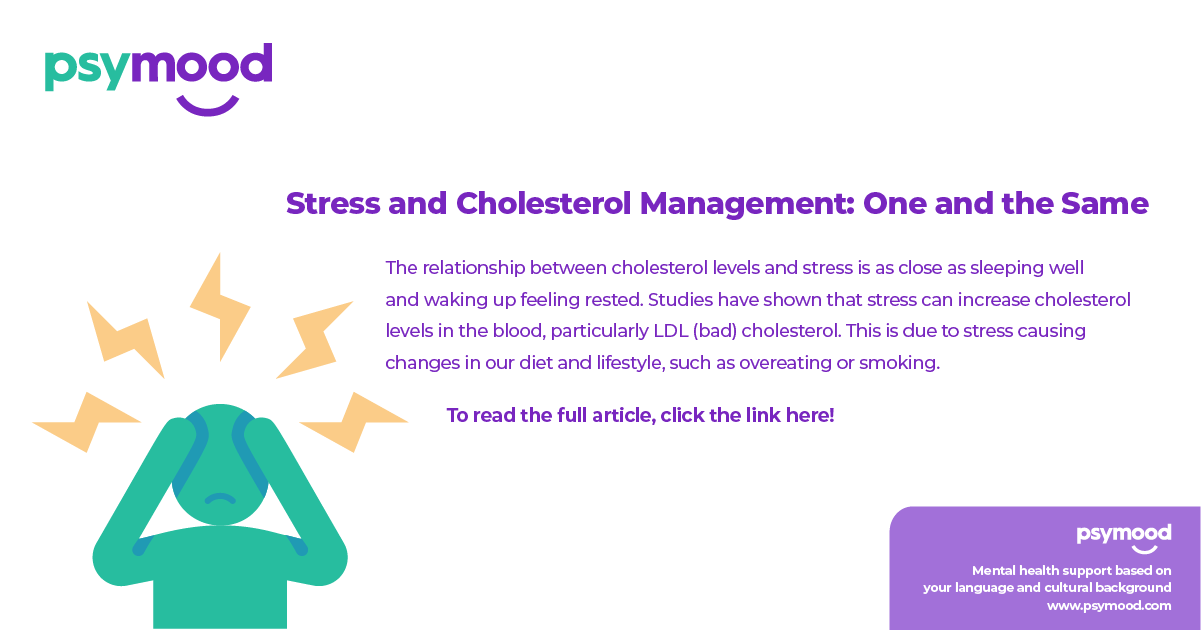Stress and Cholesterol Management: One and the Same
Back in November 2020, while recuperating from my own COVID experience, I began to take my stress and cholesterol levels seriously. Through my underlying interest in nutritional science, and my isolation, I researched and discovered that most perspectives on both topics have been warped. Since then, I’ve felt the moral obligation to preach about the learnings that have helped me make peace with these two worrisome indicators of the human condition.
While cholesterol is a vital substance that our bodies need in order to function properly, it is a well-known fact that high levels of the wrong cholesterol type can lead to a number of serious health problems, including heart disease and stroke. Stress, on the other hand, is a normal part of life that can be beneficial in small doses, but can become detrimental when it is prolonged or excessive.
Cholesterol is necessary for the proper functioning of the body’s cells, but when levels become too high, it can build up in the blood vessels and form plaques, which can block blood flow and increase the risk of heart disease and stroke. High cholesterol is often caused by a combination of genetic factors, lifestyle choices, and certain medical conditions.
Stress, on the other hand, is a response to a perceived threat or challenge. When we experience stress, our bodies release hormones such as adrenaline and cortisol, which can help us to respond to the situation at hand. However, when stress is prolonged or excessive, it takes a toll on our physical and mental health. Prolonged stress can lead to a number of health problems, including high blood pressure, heart disease, insulin resistance, and depression.
The relationship between cholesterol levels and stress is as close as sleeping well and waking up feeling rested. Studies have shown that stress can increase cholesterol levels in the blood, particularly LDL (bad) cholesterol. This is due to stress causing changes in our diet and lifestyle, such as overeating or smoking.
More directly, prolonged stress (high cortisol levels, in hormonal terms) also signals our sympathetic system to keep insulin levels high, which translates to our body focusing on gaining weight for survival. This even relates to stress causing inflammation.
On the other hand, high cholesterol levels can also contribute to stress. People with high cholesterol may be at an increased risk of developing heart disease, which can cause a great deal of anxiety and stress. Additionally, the medications used to treat high cholesterol, such as statins, can cause side effects such as muscle pain and fatigue, which can also contribute to stress.
How to Better Manage Them
- Healthy diet: A diet rich in colourful vegetables, healthy fats, and proteins can help to lower cholesterol levels and reduce inflammation in the body. Foods such as fatty fish, whole eggs, nuts, and avocados are particularly beneficial for maintaining healthy cholesterol levels
- On this note, I suggest we prioritize the prevention of insulin resistance, by regulating our meal schedules, and refraining from unhealthy amounts of carbohydrates.
- Exercise: Regular physical activity can help to lower cholesterol levels, reduce stress, and improve overall health. Aim for at least 30 minutes of moderate-intensity exercise on most days of the week.
- Not smoking: Smoking is a major risk factor for high cholesterol and heart disease. If you smoke, quitting is one of the best things you can do for your health.
- Limiting alcohol consumption: Drinking alcohol in moderation can be beneficial, but excessive alcohol consumption can increase cholesterol levels and contribute to stress.
- Practicing relaxation techniques: Relaxation techniques such as yoga, meditation, and deep breathing can help to reduce stress and improve overall well-being.
- Taking medication: If your cholesterol levels are high, your doctor may prescribe medication to help lower them. Commonly used medications include statins, which can help to lower LDL cholesterol, and ezetimibe, which can help to lower total cholesterol levels.
- Visit your doctor regularly: Regular check-ups (at least once a year) with your doctor can help you monitor your cholesterol levels and ensure that you’re taking the necessary steps to manage them.
Bringing this Knowledge into Our Lives
Esteemed Psymooder, if there could only be one thing that I wish for you, to bear in mind from this point forward, is to remember that our health is multifaceted. If we make positive changes in our mental health, it will reflect on our physical one.
PsyMood is a digital tool designed to help you find the support you need in the language that you are most comfortable with. PsyMood considers cultural background, geographical location, interests, and personal needs, amongst other factors, to pair you with service providers for either online or in-person therapy sessions.


.png)
.png)
.png)
Recent Comments